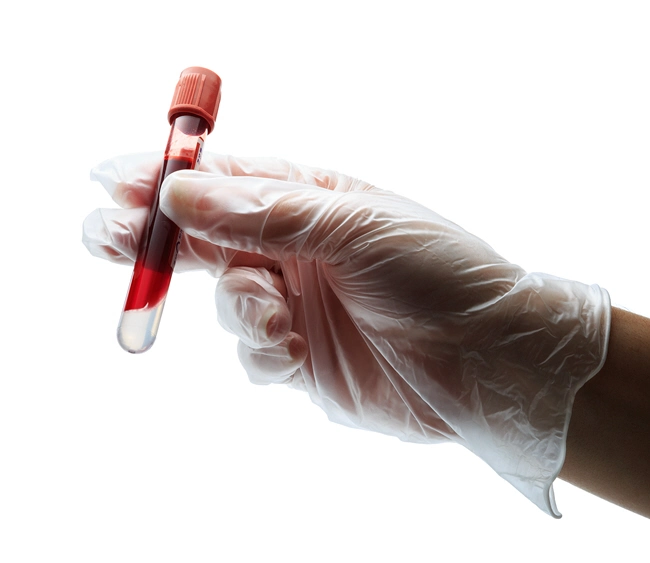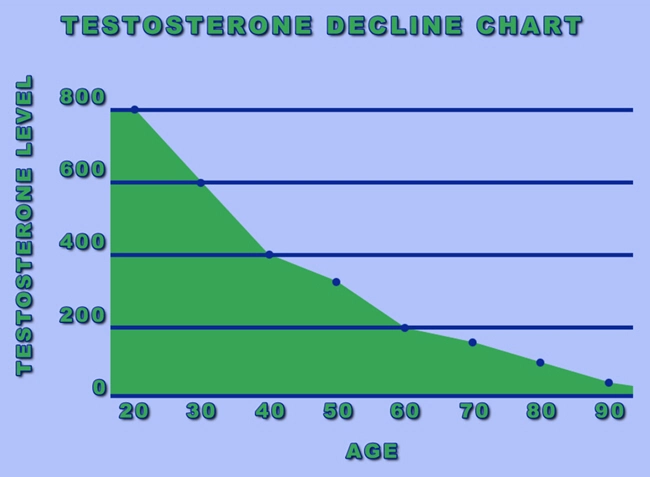
Video Link: https://vimeo.com/286854028
Video Download: Click Here To Download Video
Video Stream: Click Here To Stream Video
Did you know that there is a direct relationship between testosterone and magnesium? Probably not, since this connection is not well-known. But studies have demonstrated that magnesium levels boost testosterone bioavailability. Our clinic specializes in Testosterone Replacement Therapy (TRT) to offset the effects of lower testosterone levels in aging men.
But we believe in a comprehensive, holistic approach to boosting testosterone safely and effectively, and nutrition is a significant part of the equation, especially magnesium.
Magnesium has been described by many nutritionists and research scientists as “the miracle mineral.” And there is a broad range of reasons why. Magnesium delivers so many health benefits that it is the gift that just keeps on giving. Here is a list of the many benefits this miracle mineral provides: magnesium...
- Provides heart protection and a lower risk of stroke. Magnesium is crucial for maintaining a healthy heartbeat; after bypass surgery, hospitals use intravenous magnesium to prevent atrial fibrillation (an abnormal heartbeat that can result in stroke-inducing blood clots). There are other reasons why magnesium acts as a moat against heart disease. Magnesium regulates heartbeats, protects against arrhythmias (irregular or abnormal pulse), and sweeps away excess calcium in the blood vessels, thus lowering the risk of atherosclerosis, a known precursor of heart attack and stroke.
- Improves blood sugar levels. The chance of developing type II diabetes is dramatically slashed in people with high magnesium consumption. Adequate magnesium levels boost the body’s reaction to insulin, which removes sugar from the bloodstream.
- Reduces blood pressure. High magnesium levels improve circulation, which is linked to lower blood pressure.
- Strengthens bones. One of the scariest things to happen to elderly folks is falling. More than 300,000 senior citizens are hospitalized every year with hip
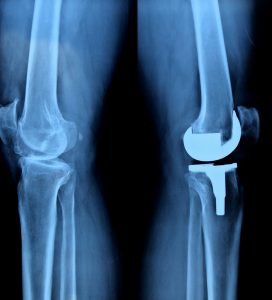 and femur fractures, and many never are the same. Osteoporosis (brittle bones) is a consequence of aging; by 2020, it is estimated that an astonishing one in two Americans will either have or be at risk of developing osteoporosis. This disease is the most common cause of fractures and can raise your risk of heart attack by 30%. Studies have shown that people with high magnesium levels have a 44% reduced chance of developing fractures.
and femur fractures, and many never are the same. Osteoporosis (brittle bones) is a consequence of aging; by 2020, it is estimated that an astonishing one in two Americans will either have or be at risk of developing osteoporosis. This disease is the most common cause of fractures and can raise your risk of heart attack by 30%. Studies have shown that people with high magnesium levels have a 44% reduced chance of developing fractures.
- Reduces cancer risk. Both pancreatic cancer and colorectal cancer rates drop in individuals with high magnesium levels. This finding makes sense since approximately 80% of pancreatic cancer patients suffered from glucose intolerance or diabetes when they received their cancer diagnosis -- and magnesium protects both of these conditions.
- Increases protection from dementia, headaches, depression, and other types of cognitive decline.
- Boosts kidney function. The kidneys are a real workhorse since they are responsible for filtering waste products from your blood. High blood pressure and elevated glucose levels take a horrific toll on kidney function and lower magnesium levels. When that occurs, the kidneys lose their ability to regulate magnesium -- a vicious cycle. The key is to avoid all of these problems in the first place, and ensuring that your magnesium levels are high is well-advised.
- Promotes longevity. Studies have determined that low magnesium levels accelerate the aging process at the cellular level. This happens when the number of senescent cells increases. Senescent cells are old, worn-out, dead cells that cannot divide and can’t help in the healing process. Also, every one of these problems mentioned in this list is directly linked to aging. Your body needs magnesium, especially as you age.
- Prevents muscle cramps. Magnesium plays a crucial role in muscle contraction and neuromuscular transmission. High levels of magnesium = fewer muscle cramps.
- Battles disease-causing inflammation. Inflammation is thought by many researchers to be one of the leading causes of disease and aging, perhaps the primary reason. Magnesium battles and lowers inflammation by reducing the action of NF-kB, a protein complex that regulates DNA and cell survival. NF-kB is sometimes referred to as the “master inflammation regulator.” When this protein is kept in check, the result is a downstream closure of cytokines and other inflammation-triggering molecules.
Why Magnesium is so Crucial to Your Good Health
Magnesium is the principal mineral in your body’s energy production from fats and carbohydrates. It accomplishes this mission by controlling the stream of various mineral ions through the cells of your arteries, veins, muscles, brain, and nerve cells.
Magnesium is especially vital for its role in electrically active cells located in the body’s crucial areas (brain, muscles, heart). Magnesium also is the “traffic cop” that monitors insulin sensitivity, genome stability, inflammation, DNA upkeep and repair, and cell signaling.
This is why it earned the title of “miracle mineral” since it races throughout the entire body, attacking everything from depression and muscle cramps to high blood pressure and inflammation.
Magnesium-Rich Foods
Here is a list of foods that will boost your magnesium levels:
- Spinach, along with other green vegetables

- Almonds
- Dark chocolate
- Avocados
- Shrimp
- Whole grains such as whole-wheat bread and brown rice
- Beans and legumes
- Nuts, especially sesame seeds, almonds, Brazil nuts, and cashews
Why Most People Suffer From a Magnesium Shortage
At first glance, it seems impossible that a mineral as critical to good health as magnesium could be overlooked. But it is. Study after study has demonstrated that most Americans have low levels of this vital mineral.
Unbelievably, as many as 70% to 80% of Americans fail to meet their minimum magnesium needs. How could this be? In a country with grocery stores containing aisles and produce departments jammed-packed with magnesium-rich foods, how in the world could anyone be low on magnesium?
There are many reasons for this magnesium deficiency epidemic. Let’s take a look at them:
- Prescription drugs. Many prescription drugs eat up magnesium, mainly commonly prescribed proton-pump inhibitors (PPIs).
- Aging. As with so many health issues, aging makes a bad situation worse. As you age, your digestive system has difficulty absorbing nutrients from food, including magnesium.
- Processed foods. Processing foods have benefits such as giving foods longer shelf life and added convenience. But this comes with a considerable downside.
 Processing food, beverages, and condiments remove many oils, bran, and other crucial nutrients. This occurs during the heating process, and an unfortunate side effect is the removal of magnesium -- at times, the total removal.
Processing food, beverages, and condiments remove many oils, bran, and other crucial nutrients. This occurs during the heating process, and an unfortunate side effect is the removal of magnesium -- at times, the total removal.
- Poor soil quality. The big agricultural companies (Big Agra) are concerned, first and foremost, with profit. This means not practicing crop rotation and altering food structures to pump out crops quicker and more massive than mother nature intended. This has led to declines in the vitamins and minerals in our food, especially magnesium. Studies have demonstrated that crops planted, grown, and harvested traditionally have retained their vitamin and mineral levels. Sadly, this is often not the case with crops raised by modern farming methods. Also, remember that, unlike many other minerals, magnesium is not manufactured inside the plant. Therefore, the magnesium in our food is determined by the magnesium in the plants' soil. In the mad quest for profits, soil quality is not given the priority and attention it deserves. Consequently, the magnesium that we can get from our food drops.
- The Standard American Diet (SAD). Fast food, copious amounts of sugar, food additives, sodas, oils, cookies, cakes, pies, and fried foods all add up -- and take a terrible toll on our health in general and our magnesium levels in particular.
- Pesticides. The extensive use of pesticides is strongly related to poor soil quality. Here’s why. Pesticides, like food processing, protect
 crops by decimating unwanted bugs, rodents, and weeds. But it can also eradicate the healthy elements in the soil, such as earthworms and beneficial bacteria. The result? Lower vitamin and mineral content in our food, including magnesium.
crops by decimating unwanted bugs, rodents, and weeds. But it can also eradicate the healthy elements in the soil, such as earthworms and beneficial bacteria. The result? Lower vitamin and mineral content in our food, including magnesium.
- Fertilizers. Organic fertilizers do not affect the vitamin and mineral composition of crops. But they are expensive compared to potash, a conventional fertilizer. Therefore, potash is the fertilizer of choice far more often than organic fertilizer on massive agricultural farms. The result is, once again, a drop in magnesium. Also, nitrogen-based fertilizers prevalent in today’s farming methods make crops more abundant but less nutritious.
Therefore, the case for supplementation has been made.
Should You Consider Taking a Magnesium Supplement?
Yes. Magnesium supplements are safe, inexpensive, and available without a prescription from your physician. 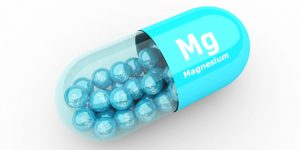 When considering all the reasons for the prevalence of magnesium shortages that affect so many people, it is evident that it's hard, if not impossible, to obtain sufficient amounts of magnesium through balanced and healthy eating.
When considering all the reasons for the prevalence of magnesium shortages that affect so many people, it is evident that it's hard, if not impossible, to obtain sufficient amounts of magnesium through balanced and healthy eating.
The nutritional quality of fresh produce in our grocery stores is diminished from what was planted and grown on the small farms of days gone by. Quality food alone cannot supply you with adequate amounts of magnesium. This does not mean you should feel free to load up on junk foods and swallow a magnesium supplement.
Smart, clean eating habits are the foundation for obtaining your optimum magnesium levels. But supplements need to be a part of the mix. There are several types of magnesium supplements available. It is a little-known fact that if you are only taking a kind of magnesium, you are still probably lacking in the benefits of the mineral. All forms of magnesium have pros and cons. Let's take a look at the several types of magnesium available in the supplemental form:
- Magnesium Citrate is highly absorbed and is known for producing a state of calm relaxation.
- Magnesium Oxide is poorly absorbed but includes a denser amount of magnesium. This poor absorption can act as a tonic for the digestive system.
- Magnesium Chelate. This category of magnesium is a favorite of fitness folks and bodybuilders due to its ability to speed up recovery from grueling workouts and help build muscle.
- Magnesium Sucrosomial has been proven to boost the immune system and keep your bones strong and healthy.
- Magnesium Orotate. This form of magnesium is thought to be effective in boosting metabolism.
- Magnesium Threonate. As potent and beneficial as most forms of magnesium are, they all have one thing in common: an inability to penetrate the blood-brain barrier. However, don't despair -0 magnesium threonate to the rescue! This remarkable nutrient has been shown to increase brain plasticity, which dramatically elevates our ability to think abstractly and learn new information.
- Magnesium Malate. Studies have concluded that malate is quite possibly the most bio-available (readily absorbed by the body) form of magnesium. Malate is also an energy-booster and is especially good on an empty stomach in the morning.
- Magnesium Bisglycinate acts as a sponge for excess stomach acid and acid indigestion.
- Magnesium Glycerophosphate. This form of magnesium offers a broad range of benefits. In addition to the enhancements mentioned above, magnesium Glycerphophate also assists in the efficient operation of the body's nervous system.
- Magnesium Taurate. This kind of magnesium contains the amino acid taurine and is particularly effective at lowering blood sugar and controlling high blood pressure. These two afflictions are a tag-team of dreadful, horrendous conditions that strike millions of people and often are fatal.
- Magnesium Aspartate. One of the most bio-available forms of the mineral, magnesium aspartate may reduce the frequency of migraine headaches, and provide relief to asthma sufferers.
- Magnesium Glycinate. Deep, restorative sleep is crucial to our overall health. From controlling our blood sugar levels, and boosting growth hormone, to refreshing our brains, and burning fat, nothing can replace a good night's sleep. Yet there are millions of people who struggle with insomnia and resort to potentially risky pharmaceutical sleeping pills. Magnesium Glycinate has helped many folks get to sleep and stay asleep. Glycinate accomplishes this by boosting levels of Gamma-Aminobutyric acid (GABA), a neuro-transmitter that has a calming effect and puts the brain into sleep mode.
The “Recommended Daily Allowance,” or RDA, for magnesium in the United States is approximately 400 mg daily for men and 300 mg for women. Assuming you are obtaining these levels through food, consider supplementing with 300 or 400 mg, divided up into two doses, one in the morning and one in the evening.
Magnesium is water-soluble, so taking it on an empty stomach ensures maximum absorption and benefit. Finally, consider two other sources of boosting your magnesium levels: mineral water and Epsom salt baths.
The “Rodney Dangerfield” of Minerals
Magnesium has been described as “The Rodney Dangerfield” of minerals since it “gets no respect” compared to other well-known vitamins and minerals. 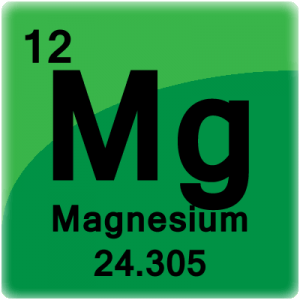 But that’s changing.
But that’s changing.
Until recently, few people have understood the broad range of benefits magnesium delivers, and the devastating, debilitating consequences of a lack of magnesium.
Fortunately, those days are rapidly receding into the rear-view mirror. The word is out: magnesium plays a crucial role in numerous vital functions that keep your body running smoothly.
Your body needs magnesium. Don’t neglect this all-important mineral.
Testosterone and magnesium = a winning team!
Contact us for a FREE, no-obligation discussion concerning the benefits of testosterone replacement therapy.
References
10 Evidence-Based Health Benefits of Magnesium
Contact Us Today For A Free Consultation
Dear Patient,
Once you have completing the above contact form, for security purposes and confirmation, please confirm your information by calling us.
Please call now: 1-800-380-5339.
Welcoming You To Our Clinic, Professor Tom Henderson.

- Obese Patients Have a Higher COVID-19 Mortality Risk Than the General Public [Last Updated On: January 24th, 2025] [Originally Added On: August 21st, 2020]
- The Health and Hormone Balancing Qualities of Broccoli [Last Updated On: July 10th, 2024] [Originally Added On: August 27th, 2020]
- What to eat to boost testosterone [Last Updated On: August 13th, 2024] [Originally Added On: December 14th, 2020]
- Breaking a Weight Loss Plateau: How to Reduce Body Fat When Nothing Seems to be Working [Last Updated On: January 20th, 2025] [Originally Added On: February 16th, 2021]
- The Top 25 Most Nourishing and Sustaining Foods to Add to Your Diet Today for Increased Longevity [Last Updated On: January 16th, 2025] [Originally Added On: February 16th, 2021]
- Fight Inflammation and Osteoporosis with Beets! [Last Updated On: January 14th, 2025] [Originally Added On: February 18th, 2021]
- Break a Weight Loss Plateau with Apple Cider Vinegar [Last Updated On: January 14th, 2025] [Originally Added On: February 20th, 2021]
- An Intriguing Look into How Growth Hormone Production and Fasting are Linked [Last Updated On: January 18th, 2025] [Originally Added On: February 21st, 2021]
- Health Reasons for a Vegan Diet [Last Updated On: September 24th, 2024] [Originally Added On: April 2nd, 2021]
- Leafy Greens are Medicine for Your Gut [Last Updated On: August 27th, 2024] [Originally Added On: April 23rd, 2021]
- All Praise to the Spud -- the Delicious, Health-Giving Potato, That Is [Last Updated On: July 11th, 2024] [Originally Added On: June 1st, 2021]
- 16 Cancer-Causing Foods to Avoid [Last Updated On: June 12th, 2024] [Originally Added On: August 12th, 2021]
- Longevity and Anti-Aging -- The Use of Flax Seed Oil [Last Updated On: May 30th, 2024] [Originally Added On: August 17th, 2021]
- Essential Amino Acids Critical to Health and Hormone Balance [Last Updated On: July 5th, 2024] [Originally Added On: October 6th, 2021]
- Growth Hormone and Calcium [Last Updated On: January 11th, 2025] [Originally Added On: October 16th, 2021]
- Growth Hormone and Coffee [Last Updated On: January 9th, 2025] [Originally Added On: October 19th, 2021]
- The Importance of Protein in Weight Loss and Testosterone Production [Last Updated On: January 19th, 2025] [Originally Added On: October 19th, 2021]
- Testosterone, Growth Hormone, and Sugar. [Last Updated On: January 9th, 2025] [Originally Added On: October 19th, 2021]
- Testosterone, Growth Hormone, and Processed Meat [Last Updated On: January 8th, 2025] [Originally Added On: October 19th, 2021]
- Growth Hormone and Intermittent Fasting [Last Updated On: January 7th, 2025] [Originally Added On: October 19th, 2021]
- Growth Hormone and the Importance of Nutrition [Last Updated On: January 7th, 2025] [Originally Added On: October 20th, 2021]
- Growth Hormone Stops Inflammation! [Last Updated On: January 8th, 2025] [Originally Added On: October 20th, 2021]
- Growth Hormone and Sugar Addiction [Last Updated On: January 4th, 2025] [Originally Added On: October 20th, 2021]
- Growth Hormone and Red Meat [Last Updated On: January 5th, 2025] [Originally Added On: October 20th, 2021]
- Boost Growth Hormone with Sleep [Last Updated On: June 11th, 2024] [Originally Added On: October 20th, 2021]
- A Natural Acid Found in Apples Prevents Muscle Loss AKA Sarcopenia [Last Updated On: January 10th, 2025] [Originally Added On: October 20th, 2021]
- Growth Hormone and Organic Foods. [Last Updated On: January 3rd, 2025] [Originally Added On: October 21st, 2021]
- Growth Hormone and Acidosis [Last Updated On: January 5th, 2025] [Originally Added On: October 21st, 2021]
- Growth Hormone Food Choices [Last Updated On: January 2nd, 2025] [Originally Added On: October 21st, 2021]
- Growth Hormone and Cholesterol: the Surprising Link [Last Updated On: January 6th, 2025] [Originally Added On: October 22nd, 2021]
- Growth Hormone and Weight Loss [Last Updated On: January 3rd, 2025] [Originally Added On: October 22nd, 2021]
- Growth Hormone Reduces Inflammation [Last Updated On: January 4th, 2025] [Originally Added On: October 24th, 2021]
- What You Eat Impacts Both Your Sleep AND Your Growth Hormone Production [Last Updated On: January 10th, 2025] [Originally Added On: October 24th, 2021]
- Growth Hormone Lowers Blood Sugar [Last Updated On: January 6th, 2025] [Originally Added On: October 24th, 2021]
- The Beneficial Functions of Brown Fat vs. White Fat [Last Updated On: June 17th, 2024] [Originally Added On: May 3rd, 2022]
- MOTS-c Peptide for Weight Loss and Muscle Building [Last Updated On: July 3rd, 2024] [Originally Added On: November 7th, 2022]
- Looking to lose weight? Add this ingredient to meals [Last Updated On: August 24th, 2024] [Originally Added On: December 7th, 2022]
- The many health benefits of black tea [Last Updated On: August 23rd, 2024] [Originally Added On: December 13th, 2022]
- Raw Food Benefits [Last Updated On: August 20th, 2024] [Originally Added On: January 18th, 2023]
- Brain Foods that Work Together with HGH to Improve Mental Sharpness [Last Updated On: February 14th, 2025] [Originally Added On: March 9th, 2024]
